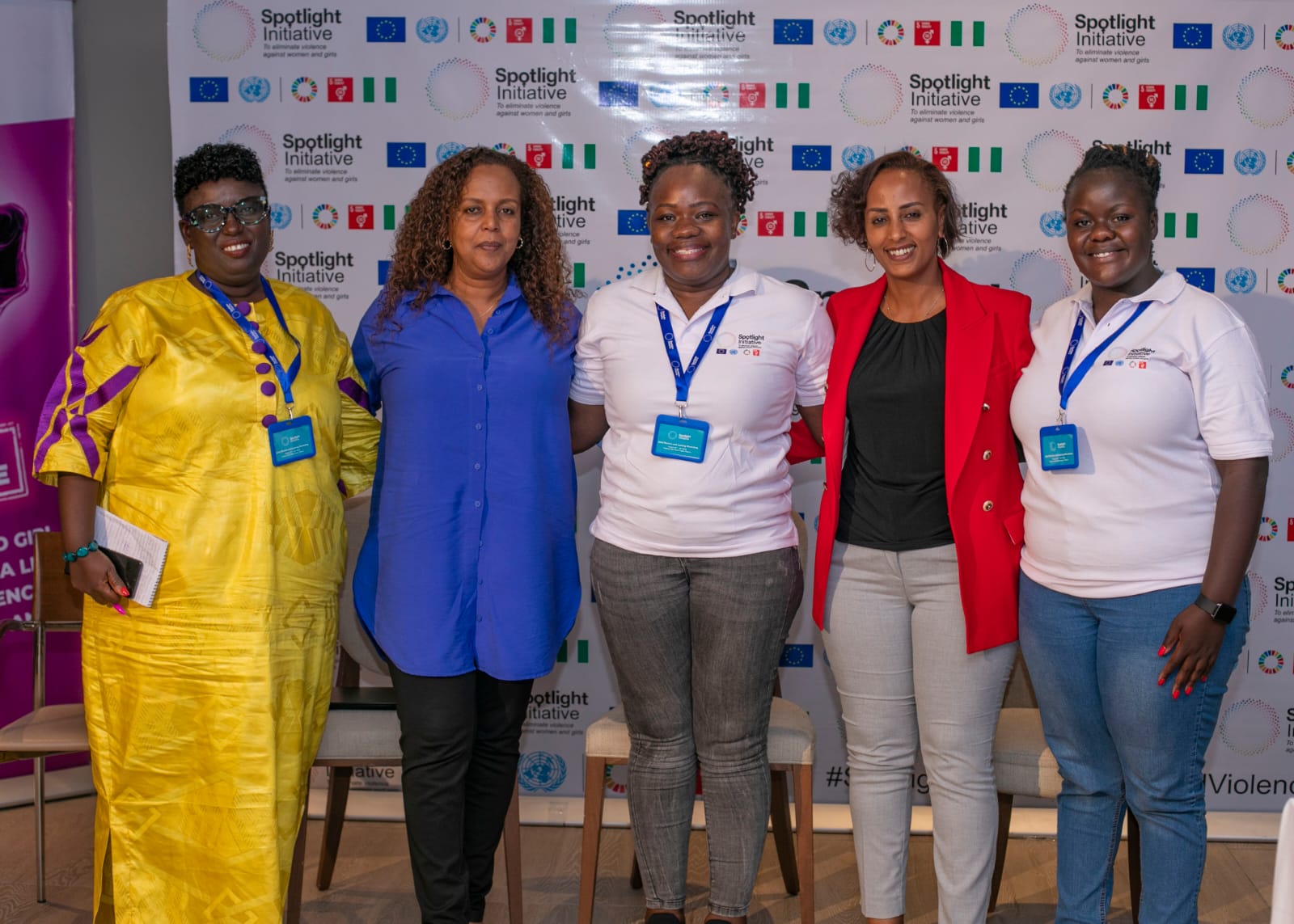
The Spotlight Initiative, “Perspectives from SRHR Specialist,”
The global Spotlight Initiative is a United Nations initiative in partnership with the European Union and other partners that seeks to eliminate all forms of violence against women and girls. The Initiative’s work is rooted in research that amplifies the belief that leadership and deep engagement of civil society is at the core of transformative and sustainable change. Below is a summary of how the initiative has worked in Africa through the insights of our SRHR specialist, Sheila Odongo.
Could you briefly introduce yourself and tell us a bit about your work?
I am Sheila Odongo, a Sexual and Reproductive Health, and Rights (SRHR) specialist at FEMNET, the African Women’s Development and Communication Network. FEMNET is a pan-African membership organization with around 800 members. We work to ensure that women, both young and older, have their voices represented in policy spaces and have access to SRHR information and services.
How does FEMNET operate to achieve its objectives?
FEMNET works closely with governments, service providers, and local authorities, including traditional, cultural, and religious leaders, to put women’s SRHR at the forefront of conversations. We also link women to health services across the continent and equip them with information and opportunities to be present in advocacy spaces.
How does gender-based violence (GBV) relate to SRHR on the continent?
GBV is intrinsically linked to SRHR. Forms of violence, such as female genital mutilation (FGM) or sexual violence, directly impact the reproductive health of women. Early and enforced marriages also have implications for a girl’s SRHR. GBV affects not only a woman’s reproductive health but also her economic and social well-being.
How widespread is this issue of GBV?
GBV is a deeply rooted problem that has persisted for decades and even centuries in some places. Both rural and urban communities face this challenge. The COVID-19 pandemic exacerbated this issue, highlighting its deep-seated nature.
How did COVID-19 manifest these problems?
The pandemic led to lockdowns and curfews, which confined people to the same spaces. Combined with stresses and a lack of mental health prioritization, we saw an increase in domestic violence cases. This violence impacted not just partners but also children. The pandemic also provided opportunities for crimes like rape and FGM to occur unnoticed due to restricted movement.
What strategies have proved most effective in tackling GBV?
Building partnerships with allies, especially male religious and traditional leaders, has been very effective. Men often listen to their peers, and when these leaders advocate against GBV, it creates an impactful ripple effect. Moreover, empowering affected women to speak for themselves has brought about genuine change. Lastly, strategic partnerships, like the Spotlight Initiative, amplify our efforts and form male alliances against GBV.
How has the Spotlight Initiative aided your organization?
The Spotlight Initiative provided essential financing, enabling us to expand our outreach and partnerships. It is imperative to maintain and even boost such support to continue making progress in this fight against GBV.
Why is there difficulty in implementing the protocols signed by African Union member states concerning GBV?
The primary issue is politics. With constant power shifts, the political will to address GBV varies. Some leaders may sign protocols for appearance’s sake or for potential electoral gains, but there is often a lack of genuine commitment to enforcing these agreements.
To conclude, what are the two most critical actions needed to address GBV on the continent?
First, we must work from the grassroots, going deep into the communities and classrooms to address the root of the problem. This includes widespread information dissemination about GBV. Second, there must be intentional investment into GBV initiatives from both development partners and governments. Without investment, our efforts remain stagnant.
For more information on FEMNET’s collaboration in the spotlight initiative, email Sheila Odongo; s.odongo@femnet.or.ke and/ or Maureen Oduor the SRHR Lead; m.oduor@femnet.or.ke
Related Tags
Related Posts
Press Release: Launch of the Campaign for the Decriminalization of Abortion in Africa
THE AFRICAN COMMISSION ON HUMAN AND PEOPLES’ RIGHTS Press Release 18.01.2016 at Addis Ababa, Ethiopia: LAUNCH OF THE
Learn More





